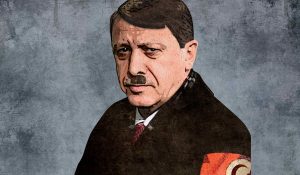Recep Tayyip Erdoğan has redefined Turkey’s foreign policy, making it more independent and nationalist. The key to the new policy is a shift in Turkey’s security concerns, as the country has become less fearful of and closer to Russia (a traditional enemy) and Iran (a regional competitor and a possible supporter of Kurdish independence), while also successfully resurrecting Necmettin Erbakan’s Islamist foreign policy, like reported by aspistrategist.org.au.
Erdoğan rose to prominence in 2002, a year after he and his ally Abdullah Gul established the Justice and Development Party (Adalet ve Kalkınma Partisi, AKP). Under Erdoğan’s leadership, the AKP has been accused of slowly and systematically trying to dismantle Turkey’s secular identity, established by Mustafa Kemal Atatürk in 1923. Many academic researchers have suggested that the AKP’s strategy involves rejecting political Islam—which refers to the implementation of Islamic values in the public sphere—while at the same time embracing Islamic identity politics.
The architect of Turkey’s revitalised foreign policy was Ahmet Davutoğlu, who steered Turkey on a course that was based more on diplomacy (run by the foreign office, as opposed to the Turkish military), economics, soft power and Turkic identity. In pursuing this policy, Turkey capitalises on its geostrategic location to underpin its role in international relations.
The policy has manifested itself in respect of Iraq, Syria, the Palestinians and Iran.
Turkey’s Kurdish problem has meant that Iraq has always weighed heavily in Turkey’s foreign policy. When ideas about dismembering Iraq were floated in the post-2003 period, Ankara was steadfast in demanding Iraqi territorial integrity, emphasising its opposition to Kurdish independence. Turkey was supported on that issue by both Iran and Syria.
Turkish–Syrian relations are cyclical, in that they are affected by three main issues:
- Syria’s interaction with the Kurdistan Workers’ Party (Partiya Karkerên Kurdistanê, PKK), which the Turks claim Syria allows to train in the Bekáa Valley
- the status of Hatay, which the Syrians claim but which Turkey annexed in 1939
- water rights, particularly over the Euphrates River.
Turkey wasn’t hostile to the Bashar al-Assad regime when the Syrian war broke out. But as it intensified and Turkey was flooded with Syrians seeking refuge, Erdoğan came to support the opposition in the hope that that would bring a quick end to the conflict.
He has since shifted to a more pro-Russian and pro-Iranian position in which al-Assad has a future role to play in Syria. That means Turkey now operates within the Astana process and not the Geneva one. One reason for this shift is that Erdoğan recognises that he has something in common with Russia and Iran: they don’t focus on his ongoing assault on Turkish democracy because they’re pragmatists, committed to advancing their national interests by any means possible.
Erdoğan’s decision to raise the Palestinian cause stemmed from domestic considerations, as it allowed the AKP to assert that it was standing up for the marginalised majority against the Turkish liberal elite. Increasingly, he has come to see the Palestinian issue as a way to position himself as one of the few leaders in the Muslim world publicly challenging Israel, Israeli policies and, most recently, US policies.
Historically, tensions between Ankara and Tehran centered on Turkish beliefs that Iran was supporting the PKK and trying to export its brand of Islamism, which made Turkey’s then ultra-secular military highly suspicious of Iran. Since 2003, relations between Ankara and Tehran have improved. Tehran has clamped down on the Party for Free Life in Kurdistan, which many believe is affiliated with the PKK, and there’s been a marked improvement in economic relations.
Erdoğan’s foreign policy has paid enormous dividends in Turkey’s interactions with the EU. European leaders recognise that Turkey is their first line of defence against irregular migration. They also recognise that they can’t afford a repeat of the 2015 migration crisis. Consequently, beyond engaging in some rhetorical chastisement, the EU hasn’t challenged any of Turkey’s major assaults on human rights, including 148 trials of people who signed a petition organised by Academics for Peace, which advocated for a peaceful solution to the conflict between Turkey and the PKK.
It seems unlikely that Erdoğan’s firm hold over the Turkish political system will end anytime soon. In fact, he recently moved the important under-secretariat for defence industry, which is responsible for defence procurement, from the defence ministry to the office of the president.
The West must come to terms with the fact that Ankara is now aligned with Moscow and Tehran, which poses a major challenge for NATO, as Turkey is a member of the alliance. We need to substantially rethink the way international peace and security could be restored to the Middle East. The game has changed.



